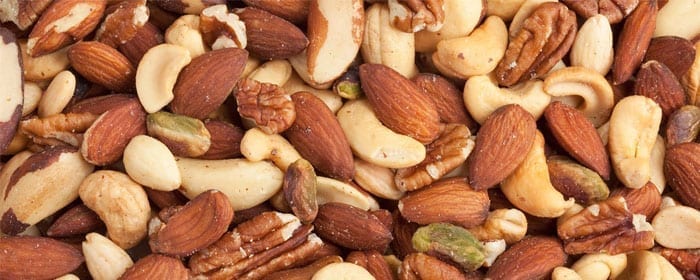Various studies have shown heart-related benefits of nuts. Including at least 20-30 grams of nuts daily decreases the risk of heart disease by almost 30%. Everyday Health provides a few nuts that are beneficial in reducing the risk of heart disease and helping to maintain a heart-healthy diet:
Almonds can help lower cholesterol and body fat.
Including almonds in your diet can lower the LDL cholesterol levels in your blood that can lead to a heart attack. Studies also show that almonds can also reduce the risk of diabetes and improve the sensitivity of insulin. Almonds can also assist with weight loss and lowering body inflammation.
The truth on peanuts.
Peanuts have generally been thought to be the least healthy of the nuts. However, including peanuts, as well as peanut butter, in your daily diet can lower cholesterol and overall risk of diabetes. It is also a good alternative source of protein.
Pistachios help lower blood pressure caused by stress.
Pistachios can be beneficial for healthy heart management. They can help lower LDL cholesterol levels and risk of diabetes while also improving the heart rate response under stress. It is suggested that eating 1.5 oz. per day of pistachios may reduce the risk of heart disease and prevention of hypertension.
Walnuts keep the arteries clear.
Walnuts contain almost 47% of polyunsaturated fats which are known as “good fats”. Unlike most nuts, walnuts also have a specific kind of polyunsaturated fatty acid called the alpha-linolenic acid which is an anti-inflammatory agent that helps to reduce the buildup of plaque in the coronary arteries. Consuming walnuts can also help improve cholesterol levels as well as small vessel and artery function.
Can you eat too many nuts?
Yes, and you want to avoid overconsumption of nuts by eating them in moderation. They are a good source of energy and protein, but too many and in high amounts can lead to gaining weight. Be aware of any nut allergies in your family history as to avoid any allergic reactions.


 St. Petersburg, Florida
St. Petersburg, Florida
